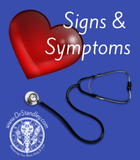Vitamin B3 is available in two basic forms -- niacin (also called nicotinic acid) and niacinamide (also called nicatinamide). It is important in tissue respiration and fat synthesis. It aids in the metabolism of carbohydrates, fats, and proteins. Vitamin B3 is not destroyed in ordinary cooking or destroyed by heat, light, air or alkali. It is soluable in hot water and alcohol.
Helps support your cardiovascular and circulatory systems, and reduces serum cholesterol. Promotes healthy blood fat levels, healthy skin, digestive system and tongue. Has to be present in the production of cortisone, thyroxin, insulin and the male and female sex hormones. We utilize it for a healthy nervous system and brain function.
Deficiencies could cause gastrointestinal and mental disturbances such as schizophrenia.
Niacin (nicotinic acid) may cause vasodilation and flushing.
High amounts of vitamin B3 should be used with caution and especially with a physician's approval by anyone who is pregnant or diabetic.
May be taken daily.
Alfalfa, almonds, apricots, asparagus, avocado, banana, bee pollen, beef, Bread (fortified), broccoli, burdock root, carrots, cauliflower, cereal, cheese, chamomile, chicken (white meat), corn, cornflower, dates, eggs, figs, fish, garlic, grains, halibut, kelp, raw honey, legumes, milk, mushrooms, nutritional yeast, nuts, oats, onion, oranges, parsley, peanuts, peas, pork, potato, prunes, brown and wild rice, royal jelly, salmon, seeds, soybeans, spirulina, all kinds of sprouts, sunflower seeds, swordfish, tomato, tuna, turkey, green vegetables, veal, walnuts, wheatgrass, whole wheat and yeast.


































 VITAMIN B3 - (niacin, niacinamide)
VITAMIN B3 - (niacin, niacinamide)